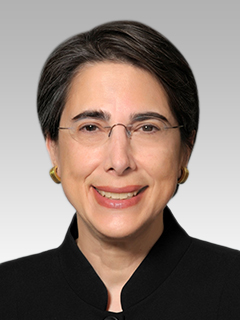Strengthening the CFO–Audit Committee Relationship
Three areas of focus to help audit committee members and CFOs maintain a strong working relationship.

Their common goals—quality financial reporting and creating value for the business and its stakeholders—may be clear, but as chief financial officers (CFOs) and audit committees grapple with expanding workloads, increased complexity, and ongoing digital disruptions, staying in sync has never been more challenging.
The work of the CFO and the finance function has continued to expand beyond financial reporting. CFOs often have responsibility for a range of nonfinancial issues, including sustainability, cybersecurity, artificial intelligence (AI), and digital transformation, as well as managing strategic risks—all of which may require new skill sets on the finance team. Many CFOs today do not have a traditional accounting and financial reporting background. At the same time, the composition of many audit committees has changed to reflect expanded committee oversight responsibilities for a range of risks, many of which are nonfinancial, such as cybersecurity, generative AI, and climate and other environmental and social issues. The expanded role of the audit committee means that ongoing education for all members is vital, with some members requiring deeper dives in specific areas.
In our discussions with audit committee members and CFOs about the keys to maintaining a strong working relationship, including what they need and can learn from each other to be most effective in their roles, the following focus areas emerged:
- The evolving role of the CFO and finance function, and the implications for leadership, talent, and skills;
- Signs of a healthy relationship between the CFO and the audit chair and committee; and
- CFO turnover and bench strength.
The evolving role
The traditional CFO focused primarily on financial reporting, which includes the integrity of numbers and the adequacy of internal controls over financial reporting, as well as the internal and external audit functions.
With a more complex business and risk environment generally, driven by factors including heightened geopolitical risks and uncertainty, emerging technologies, and demands for climate and sustainability reporting, CFOs have taken on more responsibility as strategic leaders, helping set and adjust strategy and key performance metrics and manage risk. CFOs now often lead—not just support—technology and innovation projects, and lead or play a key role in enterprise risk management.
Today’s CFOs lead a finance function that is expected to contribute more to developing and executing business strategy while continuing to effectively carry out its day-to-day financial reporting and control responsibilities. As the CFO’s role has evolved, so has the skill set required for the position. For example, audit committee members tell us that talent management has become one of the most important skills for a CFO. Ensuring that the finance function has the right skills is a continuing challenge, given the talent shortage in accounting and the need for technology professionals with AI-related skills, as well as professionals with environmental, social, and governance expertise. CFOs need to be engaged and visible in establishing a culture and environment that attracts and retains talent.
Other CFO capabilities emphasized by audit committee members include:
- Understanding the business, industry, market, and competition, and the ability to see “what’s coming next”;
- Communicating effectively internally with management and the board and externally with investors, rating agencies, regulators, and bankers; and
- Understanding and supporting the learning and development needs of the finance team and audit committee.
Given that many CFOs may not have traditional accounting backgrounds and deep financial reporting, accounting, and internal control skill sets, a strong accounting team, especially a strong controller, chief accountant, and chief audit executive (CAE), is needed.
Signs of a healthy relationship
The relationship between the CFO and the audit committee chair is critical and trust and transparency are key. Developing that relationship takes time and it is the chair’s responsibility, particularly when there is a new CFO, to let the CFO know that they have an ally. The relationship between the CFO and the audit committee can vary depending on the company. For example, at some companies, the audit committee’s primary relationship is with the controller or CAE. However, even then, the CFO’s personal relationship with the chair is critical and objectivity and skepticism remain essential.
Audit committee members and CFOs we spoke with offered examples of potential red flags in the CFO–audit committee relationship: an audit committee member asks a question and the controller or CAE hesitates before answering, or the audit committee chair learns of bad news from someone other than the CFO. The CFO should deliver any bad news to the audit committee chair directly and in advance of audit committee meetings. The CFO may also find themself in a difficult position if they are not on the same page with the CEO or if the CEO wants to control information going to the board. The committee chair can be a sounding board for the CFO in those situations.
The cadence of communications between the CFO and audit committee chair is important. Some audit committee chairs told us that they talk with the CFO monthly or even weekly, while others said they talk at least once quarterly to prepare for the audit committee meeting and reach agreement on the agenda and attendees. Special circumstances, such as an internal control deficiency or investigation, require additional discussions. A key area of audit committee focus is information quality, or getting the right information at the right time, in the right format. The CFO should put numbers and issues of importance to the business and its performance into context without overloading the audit committee with information. Ideally, premeeting materials should highlight issues and be available to committee members at least a week before the meeting.
CFO turnover and bench strength
According to Russell Reynolds Associates’ Global CFO Turnover Index,1 CFO turnover remains high, and CFO tenure reached a five-year low of 5.6 years in 2024. There are a number of reasons for the high CFO turnover rate, including more CFO retirements, more CFOs promoted to CEO positions, more willingness to change CFOs as economic uncertainty becomes the new norm, and high demand for experienced CFOs.
Given the CFO’s strategic role, which touches on many critical areas of the business, CFO turnover, particularly when unexpected, poses a significant risk of disruption to a company. A robust CFO succession planning process is essential. A key question for audit committees is whether its CFO succession planning process is keeping pace and evolving to identify the CFO skills, traits, characteristics, and experiences necessary to lead the finance function’s transformation efforts and contributions to developing and executing the business strategy. CFO succession planning should be an ongoing process that involves developing a robust pipeline of talent and should include:
- Succession planning for direct reports to the CFO,
- Opportunities for the audit committee to assess bench strength and identify potential CFO successors, and
- Training and development of the members of the finance organization.
Institutional investors have been vocal about the importance of human capital and talent development programs and their link to strategy. We expect companies will face an increasingly difficult challenge in finding, developing, and retaining the talent required at all levels of the finance function. Audit committees should consider whether the finance function’s talent plan aligns with its strategy and assess which types of talent are needed or are in short supply and how the company will successfully compete for this talent.
As their respective roles continue to evolve in response to the changing environment, the relationship between the CFO, the audit chair, and the audit committee must follow suit.
Claudia H. Allen and Patrick A. Lee are senior advisors with the KPMG Board Leadership Center.
This article first appeared in NACD Directorship Magazine.
1 Russell Reynolds Associates, Global CFO Turnover Index, August 9, 2024.
Dive into our thinking :
Explore the three areas of focus to help audit committee members and CFOs maintain a strong working relationship.
Download PDFMeet our team

